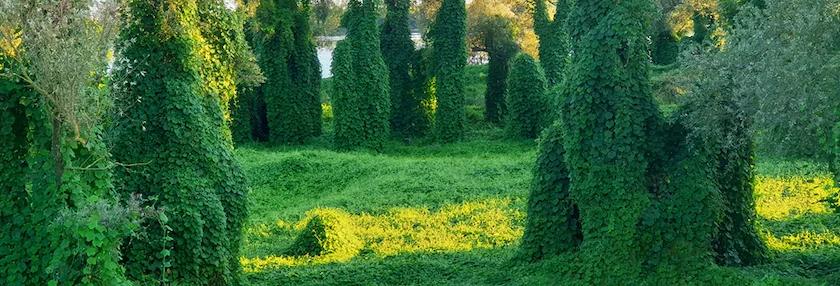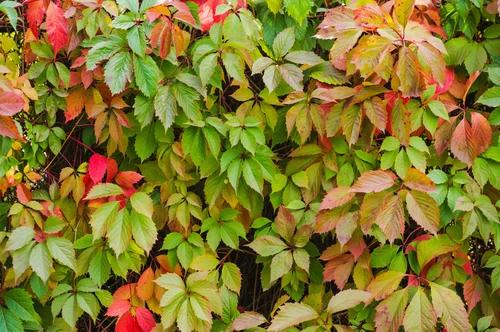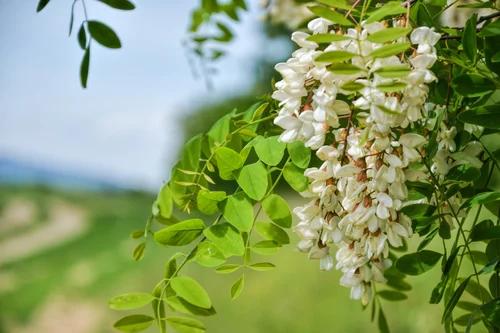Good Ideas Gone Bad


Ornamental vines and brush with unintended consequences
Call them famous last words: “It seemed like a good idea at the time.” Today, it’s a phrase muttered most often at the end of a social media video adventure that results in wrecked cars, broken bones, and the occasional explosion.
But it can also be said about the most seemingly harmless of notions, such as adding a lovely ornamental plant to your property. Good ideas go bad.
‘The Vine That Ate The South’
The most notorious endeavor echoing that sentiment: kudzu, aka The Vine That Ate The South!
Kudzu seemed like a good idea when it was introduced about 150 years ago. A lovely ornamental, they said, that would also be great for erosion control.
In fact, the government offered $8 per acre of kudzu grown to help stop soil erosion.
Then kudzu dug in. Established kudzu can grow as fast as one foot per day, climbing trees, road signs, buildings—anything that holds still long enough for it to grab on to. It takes over native plants and trees, stealing light, water, and nutrients from them. And it covers the ground in shade, preventing the growth of new trees and plants.
If we’re persistent, kudzu can be eradicated with herbicides like Brush Killer For Hard-to-Kill Brush from Gordon’s, by consistent and regular mowing, and through livestock grazing. According to the USDA, goats and pigs love kudzu, and it has a crude protein content of 15-18%.
A home grown creeper
Of course, kudzu is not native to the U.S., so it shouldn’t be surprising that it causes problems. Native plants are always a good idea, right? Well…it’s complicated.

Virginia creeper is an all-American species, so planting it might seem like a good idea. Wildlife loves it: the foliage is great for shelter, birds feed on the berries, and mice, squirrels, deer and other critters love the stems and leaves. Virginia creeper is a perennial, growing in both shade and sun, and in the fall, its leaves are stunning red and maroon. So what could go wrong?
Ask that lilac bush that it’s engulfing what could go wrong with Virginia creeper. The berries are pretty, but they’re toxic to humans. And while it’s not in the same league as poison ivy, Virginia creeper sap can be irritating to the skin.
So planting Virginia creeper as a ground cover might seem like a good idea, and it is certainly beautiful in the fall. But you need to be the boss. Keep it under control by trimming and pulling it, and with chemical control when you need it. And once again: goats chow-down on the stuff.
More than fenceposts
Another native species that seemed like a good idea at the time it was being cultivated across the country and even overseas: black locust. A fast grower, it’s been planted for lumber, fence posts, and to stop soil erosion, and as a nectar source for bees. It’s native to the Ozarks and Appalachia, so why not everywhere?
The answers to “why not black locust” will sound familiar: it shades out everything. In fact, black locust is considered invasive in many areas because it shades out native species, and produces a chemical that stops other plants from growing in the area.
Black locust puts out suckers so prolifically that it can quickly dominate a landscape.
Worse, its bark, seeds, and leaves are toxic to humans and livestock if ingested, so cutting and chemical control is best.
Many other bad/good ideas
Some other plants that might fit the “Seems like a good idea” category: Mesquite. It’s a western icon loved by wildlife, but its huge roots can affect anything growing around it, and the thorns and seed pods can be a problem.

Multiflora rose is pretty (sometimes) and wildlife love it (usually), but it spreads fast and will overtake almost anything that gets in its path.
The fact is, even poison ivy and poison oak have their place. That place is in the forest, though, not in your lawn, and no one is planting them.
Have a plan for your property. Research what plants will help you achieve that perfect lawn and control the plants that won’t, either by cutting them, using a chemical control, or invest in a herd of goats.
Thanks to PBI-Gordon Companies, Inc. for information on this topic.
Virginia creeper: Even tougher to control
https://plant-pest-advisory.rutgers.edu/getting-the-upper-hand-on-virginia-creeper/
Tags:Country Living

Acreage Life is part of the Catalyst Communications Network publication family.
















